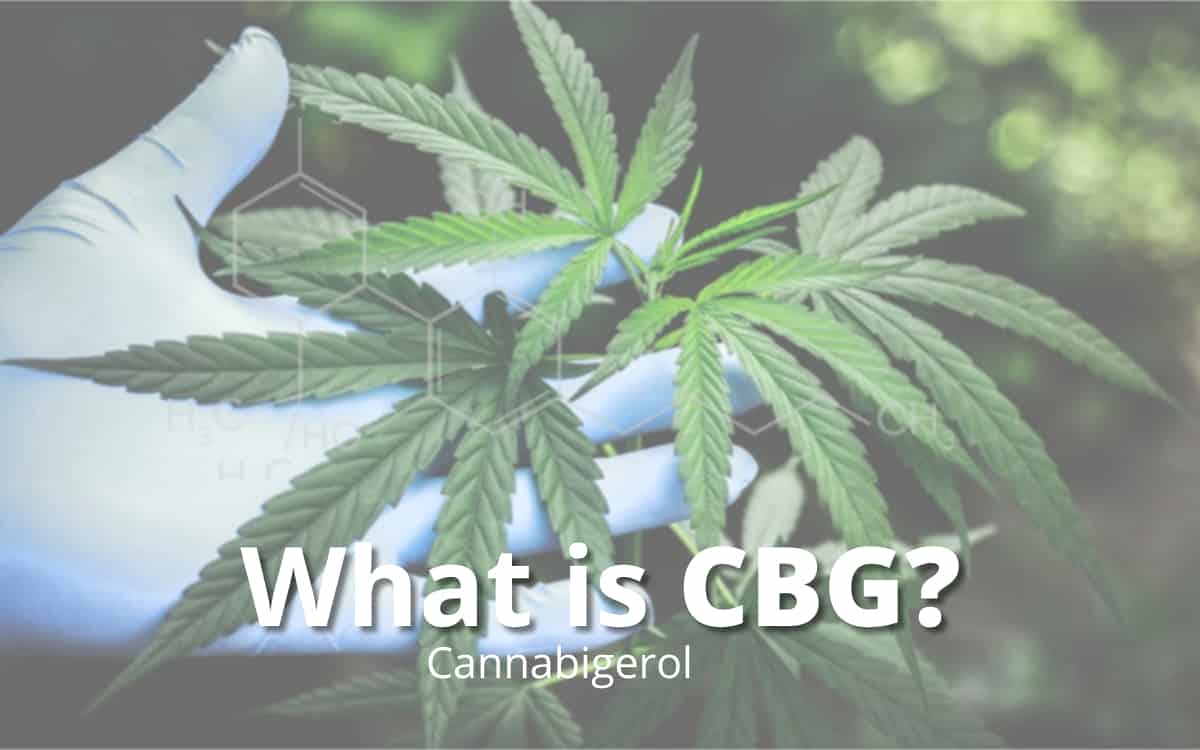Hemp is among civilization’s earliest cultivated crops and cannabis among the oldest-known medicinal crop. Only lately, modern science is beginning to unlock some of the higher-use benefits of these plants, including the elusive Cannabigerol molecule. We want to help you to understand this “new trend” and what is CBG good for.
While THC, the psychoactive compound of cannabis, and CBD from hemp are two very most well-known of the more than 100 cannabinoids that have been identified, CBG is clearly one of the most interesting. First identified in the 1940s, CBG is considered to be a sort of stem-cell of all the cannabinoids. Its acidic state cannabigerol acid (CBGA) is prevalent in younger plants but is readily fragmented into one of three other major cannabinoid groups.
Ultimately, these cannabinoid acids create more stable molecules, including THC, CBD, and CBG. CBG and CBD are readily found in hemp plants containing less than 0.3 percent of THC, as mandated in U.S. law regulating hemp products.
Recent studies into CBG’s medicinal benefits
Because of its transitive nature, CBG is considered a minor cannabinoid, as it normally constitutes less than 1 percent of mature hemp plans. However, its medicinal benefits appear to be vast due to its ready interaction with the endocannabinoid systems found in all mammal species, including humans.
The endocannabinoid system is known to help mammals keep their bodies in a state of homeostasis, for instance regulating immune cells at the site of injuries. A 2014 pre-clinical study found CBG may protect against colon cancer. Other molecular testing showed potential in treating inner-eye pressure from glaucoma, as well as other inflammatory benefits and antibacterial properties.
Studies of CBD in combination with other specific cannabinoids, including THC and CBD, have also shown interesting results. In a study of cancerous rat tissues published in the British Journal of Pharmacology, both combinations and isolated molecules were found to be effective inhibitors for various specific targets.
CBG and CBD flower as a food additive and smoking product for health benefits
While the extraction of pure CBG oil is an expensive process in comparison to CBD, cross-breeding can increase the amount of Cannabigerol present in hemp. Herbal medicine practitioners have found the flower to be effective in various ways, as a food additive and in vaping or smoking.
Selective breeding of hemp can yield much higher concentrations of CBG. For instance, VESL’s CBG hemp contains 15.5 percent CBG and only 0.17 THC. (Mention CBG tincture), and the recent new CBG Tincture 500mg contains 15mg of Cannabigerol per mL.
CBD, as a smoking product, has been found to be effective in efforts to reduce tobacco consumption, according to a 2013 clinical trial by the University of London.
According to the study, “In smokers who wished to stop smoking: 24 smokers were randomized to receive an inhaler of CBD (n=12) or placebo (n=12) for one week, they were instructed to use the inhaler when they felt the urge to smoke. Over the treatment week, placebo-treated smokers showed no differences in the number of cigarettes smoked. In contrast, those treated with CBD significantly reduced the number of cigarettes smoked by ~40% during treatment.”
Other potential health benefits for CBD and CBG:
CBD (Cannabidiol)
- May relieve Anxiety
- Treatment for seizure (Epidiolex)
- May help with Alzheimer’s Disease
- May help with Multiple Sclerosis
- May help manage Parkinson’s Disease
- May help prevent stroke
- May help in managing arthritis pain, chronic pain, Multiple Sclerosis pain, muscle pain, and spinal cord injuries
- Has anti-acne properties
- May help alleviate cancer symptoms and cancer treatment side effects
- May help reduce appetite
CBG (Cannabigerol)
- May help regulate blood pressure
- May treat glaucoma and intraocular pressure
- Has anti-inflammatory properties
- Has antibacterial properties
- May help combat Huntington’s Disease
- May help to inhibit tumor growth
- Contributes to GABA reuptake inhibition which may lead to muscle relaxation, tension relief, and a sensation of calm and peace
- Could help inflammatory bowel disease and colitis
- May help treat eczema and psoriasis
- May help increase appetite
There may be more potential benefits that CBD and CBG might offer but studies are still being done. All of the benefits that CBD and CBG are known to provide are still not approved by the FDA. Hopefully, in the near future, we can see the authorities accepting how CBD, CBG, and other Cannabinoids help many people to maintain a healthy lifestyle.
All information contained in this article is for informational and educational purposes only and is not intended as medical advice. Always consult a physician or a qualified healthcare provider for any questions regarding your health and well-being.
